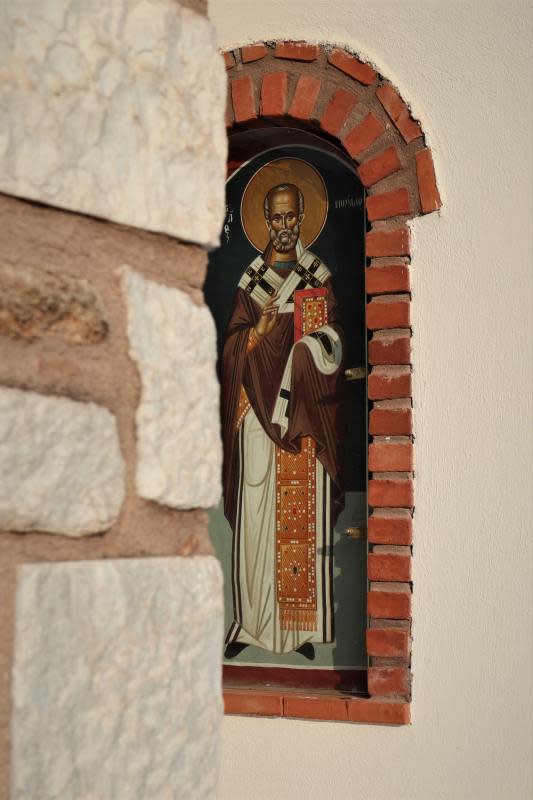Is Santa Real? How To Explain Santa to Your Kids

Year after year, you spend time with your kids making lists for Santa or taking them to the mall to visit him. You probably talk about the naughty and nice list and maybe leave out cookies and milk on Christmas Eve. Then it happens—one day your thoughtful child asks, "Is Santa real?" You may find yourself scrambling for the right answers. Either that or you try distracting them from the question. At some point, though, you'll have to be out with it. So how do you explain Santa to your kids in a way that is both honest and yet keeps the spirit of Saint Nicholas alive?
When your kids really begin to doubt the magic of Santa Claus, honesty is always the best policy. You want them to trust what you say is real about everything, so it needs to start with Santa. Once your child begins to have these thoughtful questions, you'll know they are ready for the truth. This doesn't mean that you have to take away from the essence of Santa. You can still keep the spirit of Christmas alive by explaining the true legend behind Saint Nick.
Many parents also want their children to know the real reason for the season by teaching them about Jesus. To avoid confusion about what is real and what's not, it's important to be very honest when your child has questions. The best place to start with the question of whether Santa is real or not is with the true history of Saint Nicholas.
Related: Dear Santa! This Is Kris Kringle's Real Address
Is Santa Real?

Liviu Florescu/unsplash
According to historical records, Santa is real. Santa is real in the sense that he was an actual person. Otherwise known as Saint Nicholas, his story goes all the way back to the 3rd century. He was a monk who was born in 280 A.D. in modern-day Turkey. As an only child, he was given great affection by his parents. When his parents both died due to a plague, young Nicholas developed a tender heart toward the suffering of others. Saint Nicholas became a legend due to his kindness and generosity. It is said that he gave away most of his wealth to help the poor and sick and he became known as the patron saint of children. This is where the spirit of giving comes in.
Related: 9 of the Biggest Santa Claus Myths—Debunked
The celebration of Saint Nicholas started with his feast day, on December 6, which is the anniversary of his death. Traditionally, this day was considered a day of gift-giving.
Saint Nicholas made his way into American culture back in 1773 when the Dutch gathered to honor the celebration of his feast day. At this time, the Dutch name for Saint Nicholas was Sinter Klaas and where the English version of Santa Claus came in.
Related: How to Write a Letter to Santa—Plus, Our Downloadable, Elf-Approved Template
How Did Santa Claus Merge With Christmas?
Because December 6, or his feast day, was a celebration that included the giving of gifts, the celebration was moved to Christmas Day when we were given the greatest gift of all. Since the real Saint Nicholas devoted his life to helping others, it seemed appropriate to merge the two at the time.
As time went on, however, the legend of Santa Claus became more of a myth than reality. The focus became more on the magical aspects of Santa living at the North Pole and knowing who was naughty and nice. Not to mention the flying reindeer and the trips down the chimney.
How To Really Explain Santa
Focus on the good and loving qualities of Santa that lend to the Christmas spirit. The real Santa Claus was selfless and had a heart for helping others. Since he was especially kind to children and was a giver of gifts, kids will see the similarities to the mythical Santa. The truth will make more sense to them which will be reassuring.
These good qualities of Saint Nicholas will be appreciated and set a good example for all of us to follow. This is the spirit of Christmas that will never be lost. Depending on the age that your child starts to ask questions will determine how in-depth to get with your explanation.

Samuel Holt/unsplash
Even after your child knows the truth about Santa, the fantasy parts could still remain part of the holiday tradition. Kids love fantasy stories and there is usually no harm in that. Just because they know the truth doesn't mean that can't play make-believe. Let your child dictate how much of the fantasy they still would enjoy in your family traditions. It's just plain fun to leave out cookies or make lists for "Santa."
Related: Hey, Santa! Here’s the 411 on How To Call the Santa Claus Hotline
Let Your Child Be Santa

iStock
There is no better way to convey the spirit of Christmas than to let your child take on the role of Santa. You could let them shop for gifts for other members of the family or for friends and neighbors. We all know the joy we get from giving. Why not let your child have the same experience? This could help to instill a giving attitude at other times of the year as well.
Make sure to include the wrapping and hiding of the gifts before Christmas. The anticipation of giving a secret surprise will probably be enjoyed as much as receiving their own gifts.
Next Up: Santa Claus Is Comin' To Town—and He's Bringing With Him 50 of the Best Santa Jokes!
